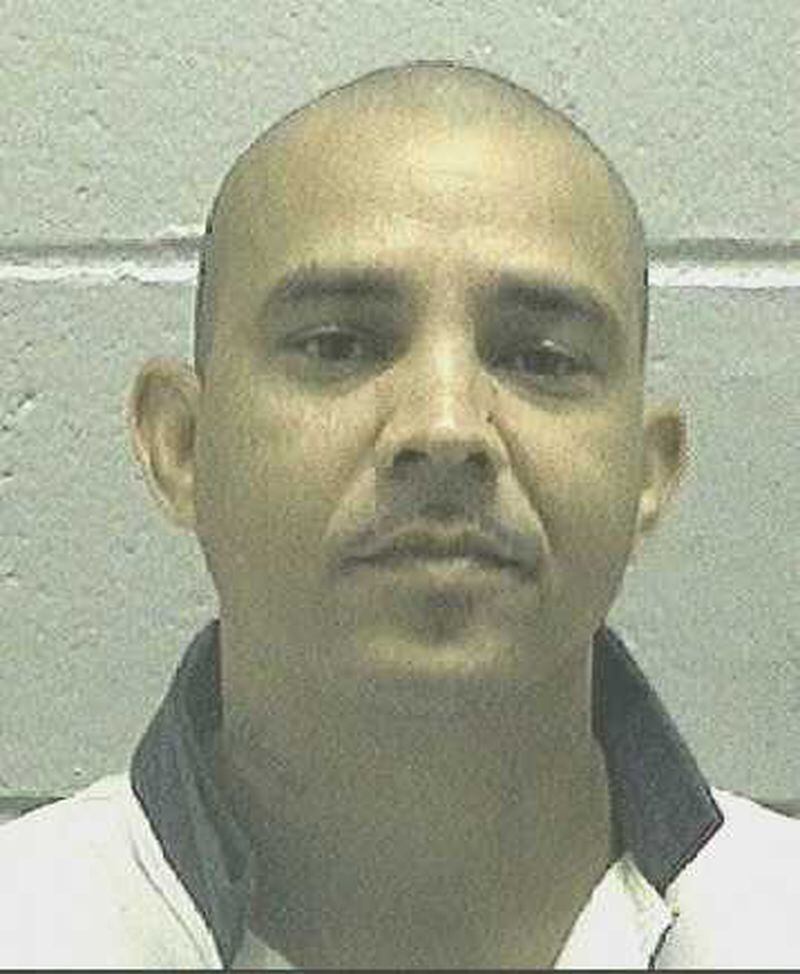A deeply divided federal appeals court in Atlanta has ruled against a Georgia death-row inmate in one of the more unusual appeals to come before the court in years.
Lawyers who are trying to keep the inmate alive and state attorneys who are trying to put
Credit: Bill Rankin
Credit: Bill Rankin
him to death were both in agreement on the appeal – yet a 6-5 majority of the 11th U.S. Circuit Court of Appeals ruled against them.
The appeals court decided the arcane question of what prior state court ruling it should evaluate when deciding the merits of a condemned inmate's federal appeals. The outcome of Tuesday’s decision means it could be much more difficult in the future for death-row inmates to persuade the federal appeals court to overturn their capital sentences.
The 11th Circuit, in a decision written by Judge Bill Pryor, ruled that his court only had to look at a terse, summary opinion by the Georgia Supreme Court when it declines to hear an appeal of a lengthy and detailed ruling by a state Superior Court judge. Trial judges routinely issue such rulings after convening hearings and considering evidence and testimony.
Both lawyers for condemned inmate Marion Wilson and the state Attorney General’s Office had told the 11th Circuit that they thought, when reviewing the merits of an inmate’s appeal, it should look at the reasoned, detailed ruling by the state court judge. When the 11th Circuit learned the two sides that are always fiercely litigating against each other were for once in agreement, it did something even more unusual. It appointed Adam Mortara, a Chicago attorney who was not involved in the case in any way, to argue the other side of the issue. And it ruled in his favor.
In the majority decision, Pryor wrote that when Georgia Supreme Court denies to hear a death-row inmate’s appeal, it is making a determination that the inmate’s appeal lacks merit. For this reason, the state high court has considered the merits of the case, Pryor said.
“To contend that the denial is not an adjudication on the merits is to suggest that the elaborate procedures of the Georgia courts are a sham,” Pryor wrote. “We refuse to endorse that suggestion.”
Pryor’s 31-page majority opinion was joined by four colleagues who most often side with the state in death-row appeals: Ed Carnes, Gerald Tjoflat, Frank Hull and Stanley Marcus. The deciding, and sixth, vote appeared to belong to Julie Carnes, a former federal judge in Atlanta put on the appeals court by President Barack Obama in 2014.
Credit: Bill Rankin
Credit: Bill Rankin
Wilson and co-defendant Robert Earl Butts sit on death row for killing state prison guard Donovan Parks in 1996. The two men asked Parks for a ride outside a Wal-Mart in Milledgeville, and when Parks let them inside his car and drove away, Wilson and Butts ordered him to pull over. One of the two men then killed Parks with a shotgun blast to his head.
The 11th Circuit's ruling sets a precedent that should make it more difficult for the appeals court to overturn death sentences in the future, dissenting judges said. That's because a federal court can only step in and throw out a conviction or capital sentence when it finds that a state court misapplied clearly established U.S. Supreme Court precedent or based its ruling on an unreasonable determination of the facts.
In death cases, if the 11th Circuit only has to rely on the state Supreme Court's one-sentence summary denial to hear an appeal of the lower-court judge's opinion, then the federal appeals court can come up with its own reasons as to why the death sentence should continue to be upheld. The appeals court could not offer such speculation if it must look at the detailed ruling by the lower-court judge. In that case, the appeals court would only review the reasonableness and adequacy of the state court judge's ruling.
Pryor’s majority opinion was followed by 61 pages of dissents, one written by Judge Adalberto Jordan, the other by Judge Jill Pryor. Both of their dissents were joined by Judges Beverly Martin, Charles Wilson and Robin Rosenbaum.
Jill Pryor wrote that she feared the new precedent will deprive death-row inmates the
Credit: Bill Rankin
Credit: Bill Rankin
chance to get relief when filing appeals -- writs of habeas corpus -- in federal court that challenge their convictions and sentences.
By deferring to a summary decision by the Georgia Supreme Court, a federal court “can conjure up any ground upon which relief reasonably could have been denied,” even when the Superior Court judge’s lengthy opinion upholding the death sentence was contrary to clearly established law, Pryor wrote.
Jordan noted in his dissent that two U.S. Supreme Court justices – Ruth Bader Ginsburg and Elena Kagan – have expressed their opinion that the 11th Circuit would be in error to follow the path taken by Tuesday's majority opinion.
“Two justices do not a majority make,” Jordan wrote. “But their view should be given due consideration.”
About the Author









